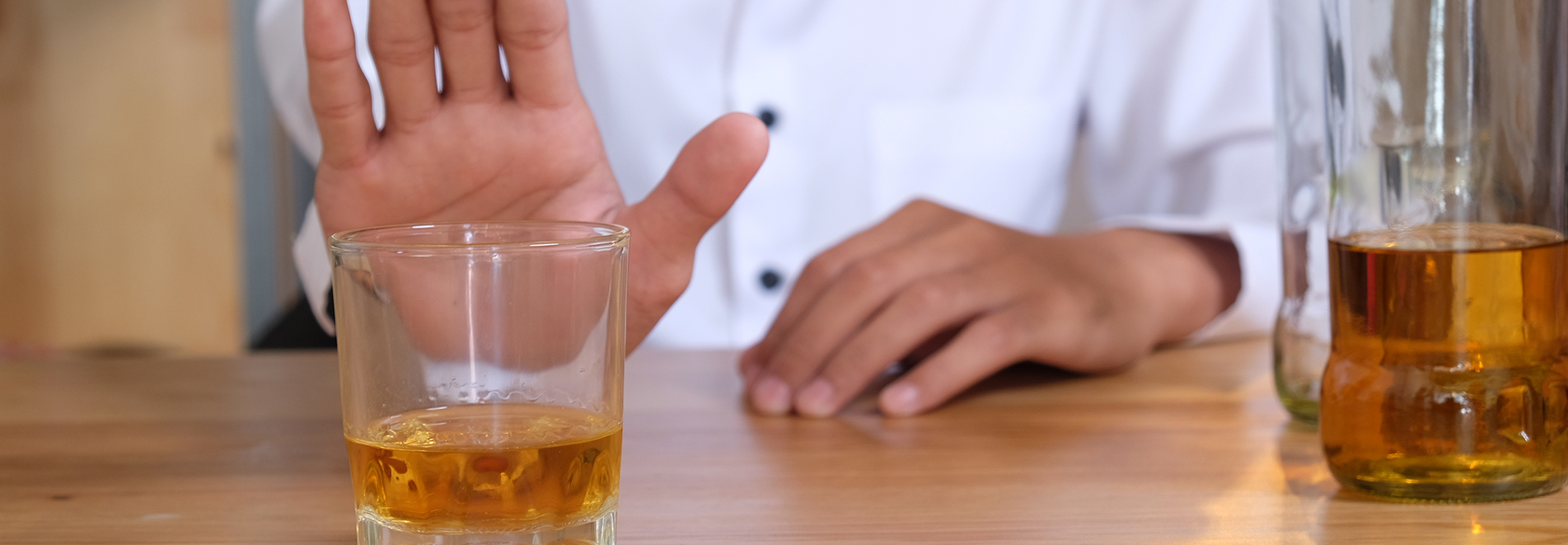Defining Alcoholism
Table of Contents
Alcoholism is a chronic, and often progressive condition. It is often referred to as an alcohol use disorder. If you’ve experienced alcoholism, you have a better understanding than most.
You know how compulsive and overwhelming the need to drink can be. It takes more than a desire to stop drinking to overcome it.
And you may have already seen some of the consequences that come from alcoholism. Whether physical, mental, or social, these can be life-changing.
Immediate Placement in Alcohol Rehab
Alcohol Addiction vs. Binge Drinking
There is often confusion when it comes to alcoholism and binge drinking. There are differences between the two that aren’t always as clear as they should be.
For example, you may be able to binge drink at a party one night and function normally the following day. The same is rarely true for alcoholics.
This chronic brain disease often won’t allow you to function normally, even when you want to.
Binge drinking is defined much differently than alcoholism.
For women, binge drinking means anything more than four drinks in two hours.
For men, it’s five drinks in two hours. The criteria for alcoholism are much more advanced.
Medicare Accepted for Alcoholism Rehab
Loss of Control and Negative Emotions
As an alcoholic, you may often feel a compulsive need to drink. A loss of control and negative emotions when sober are other common indicators. You may experience intense alcohol cravings and an inability to cease drinking. And increased participation in dangerous or uncharacteristic activities is common. You may feel indifference (or avoidance) toward your career or close personal relationships. And you will likely experience withdrawal symptoms when you try to quit “cold turkey” at home. These are some of the distinct differences that separate binge drinkers from alcoholics.
Why Alcoholism Occurs
The National Survey on Drug Use and Health is a valuable resource. It has aided our understanding of alcohol and drug addictions over the years. The 2018 survey revealed that 139.8 million Americans 12 and older were alcohol users in the past month. 67.1 million were binge drinkers at that time. But more importantly, 16.6 million were heavy drinkers at that time. And 14.8 million had an alcohol use disorder.

Why do Some Become Addicted and Others do not
The differences in the numbers are revealing. They tell us that many people use alcohol at levels that fall below the threshold for alcoholism. Which leaves many people wondering, why do some become addicted and others do not? It’s rare to find a singular cause of alcoholism. When you evaluate your alcoholism, you’ll likely identify several potential causes.
Our addiction health experts will help you work through underlying causes and factors. Co-existing drug addictions occur for most alcoholics. Underlying mental health issues are a common cause. And a family history of alcoholism is a high-level indicator. Early exposure and trauma are also common. A variety of genetic, social, and environmental factors may contribute to your alcoholism. But the numbers above also tell us something even more important: you are not alone in your suffering.
Alcohol rehab centers like ours can help you overcome your alcoholism. You are more than a statistic and you deserve comprehensive, long-term care. You deserve a healthy, sober, happy life.
Emerald Isle’s alcohol rehab can help you get there. Whether inpatient, outpatient, or something in-between, there are a variety of options available.
For More Info on Alcohol Rehab
Alcohol Rehab Options
At Emerald Isle, we understand that everyone is different. Every life is different and every addiction is different, too. That is why we aim to improve your access to treatment and recovery. We aim to improve the lives of the patients, friends, families, and communities we serve. We do this by providing a wide range of treatment options for each of our patients. And we do this by constantly working on improving our approaches.
When you’re seeking alcohol rehab care, you’re receiving so much more than that. We’ll help you address underlying mental health issues, other addictions, and your general health and wellness, too.
When you’re seeking alcohol rehab care, the following options may be available to you:
- Residential alcohol rehab
- Partial hospitalization program
- Outpatient alcohol rehab
- Intensive outpatient alcohol rehab
- Long-term alcohol rehab
- Aftercare addiction treatment
Many of these alcoholism treatment options will feature the same (or similar) techniques. Various therapies will help you:
- Identify root causes
- Address underlying issues
- Repair damaged relationships
- Begin your sober lifestyle with a clear mind, strength, and confidence
Meanwhile, support groups are a safe place to exchange stories and learn from others on the same path. Exercise classes for residential patients promote physical and mental health. Yoga and meditation are excellent examples of this. Residential patients also receive nutritional guidance and three healthy meals per day. Each of our programs includes a wide range of proven and holistic care techniques.
Why We Prefer Inpatient Rehab for Alcoholism
Inpatient or residential alcoholism rehab is often preferred. With 24-hour access, this provides the highest level of support. The length of your stay in an alcohol rehab center will depend on your addiction and needs. Your residential treatment program will likely begin with a detox. By providing a detox, we are better able to enforce early sobriety. It also makes it easier for us to ease and track your withdrawal symptoms.
There are a variety of alcohol withdrawal symptoms you may experience. These may include nausea, tremors, or seizures in advanced cases, among others. Besides increased support and access, this is another reason we recommend residential treatment.
Outpatient or Intensive Outpatient Care
For some individuals, a residential stay may be out of the question. Work or family obligations may prevent you from relocating temporarily. In these instances, outpatient or intensive outpatient care is an incredible alternative. You’ll have access to treatments each week while still enjoying the freedom of living at home. You will attend alcoholism treatment sessions at scheduled times each week. You’ll spend the rest of your time working, spending time with family, and enforcing your sobriety at home.

Costs of Rehab Treatment for Alcoholism
There isn’t a one-size-fits-all answer to the costs of rehab treatment for alcoholism. The treatment cost will vary depending on a range of individual factors. First, the type of treatment (inpatient, outpatient, etc.) is considered. Residential stays come with healthy meals, increased access to care, and housing expenses. As such, inpatient or residential care is often more expensive than outpatient care.
Whether you need a medically-assisted detox is another factor in the final cost.
Longer Treatment Programs Equal Better Results
The duration of your program is another factor. Experts agree that longer treatment programs often equate to better results. They recommend a minimum of three months in treatment to reduce or end an addiction. But the three months or more doesn’t have to take place all in the same setting. Many patients start with a residential program. They’ll stay for a time before moving on to outpatient care. This often occurs once they feel strong enough to face their addiction at home.
Intensive outpatient care serves as a middle ground between inpatient and outpatient care. It requires more hours and participation than outpatient care. But doesn’t require a residential stay. We’ll work with you to determine the best option. The first step in determining the costs of your care plan is creating your care plan. We customize each program to ensure only the highest levels of success. Once we have a better understanding of your needs, we can help answer questions about the costs.
At Emerald Isle, we accept most major health insurance providers. Many of our patients find that these options reduce or eliminate their out-of-pocket expenses. If you don’t have health insurance, we are happy to discuss alternatives.
For more information, contact one of our treatment specialists today. Our addiction hotline is available 24 hours per day.
Medicare Accepted for Alcohol Rehab
Emerald Isle Alcohol Rehab Center
Emerald Isle is an alcohol rehab center that is caring, comprehensive, and effective. We offer an integrated and evidence-based approach to recovery.
By placing our clients’ well-being and sobriety over everything else, we can offer high-quality, holistic care that is difficult to find elsewhere.
Come find long-term and sustainable recovery at Emerald Isle.
